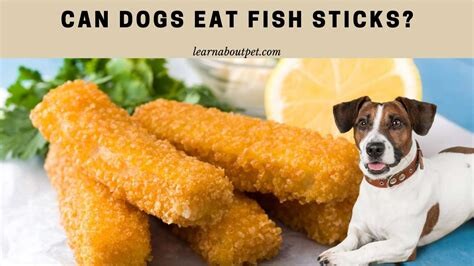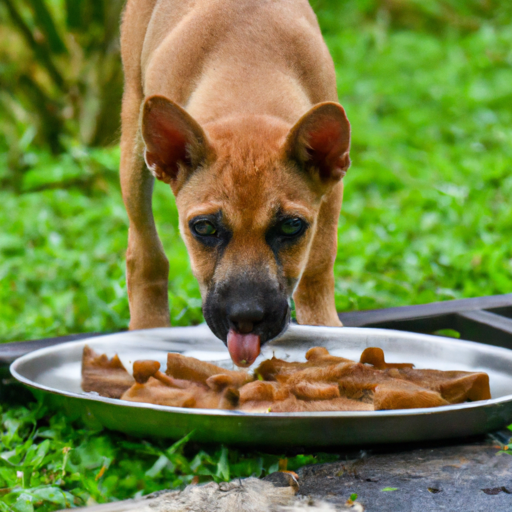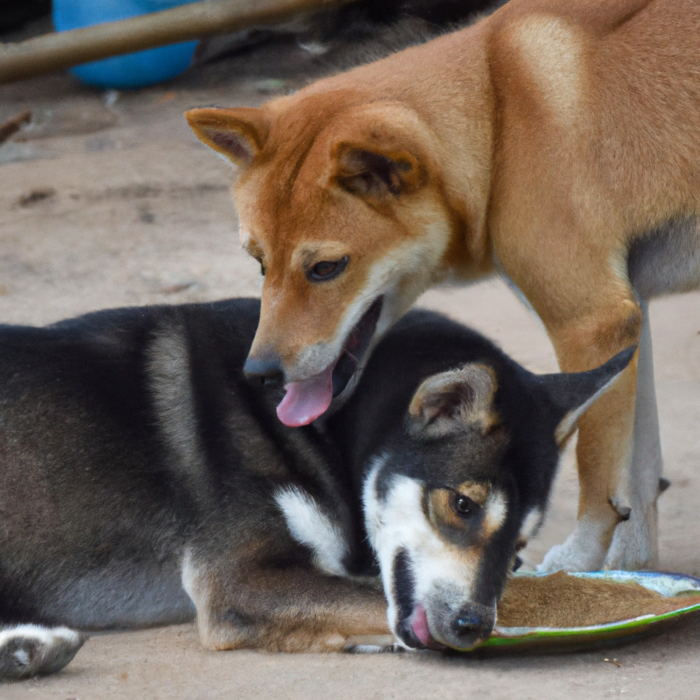Are Cinnamon Rolls Safe for Dogs? Potential Risks of Feeding Cinnamon Rolls to Dogs. Digestive Issues and Cinnamon Rolls. Cinnamon and its Effects on Dogs. Healthy Alternatives to Cinnamon Rolls for Dogs. How to Safely Include Cinnamon in Your Dog’s Diet. Consulting a Veterinarian for Dietary Advice.
Welcome to our blog post discussing the safety of cinnamon rolls for dogs! While we may find it tempting to share our sweet treats with our furry friends, it is crucial to understand the potential risks involved. In this article, we will explore the digestive issues that can arise from feeding cinnamon rolls to dogs and the effects of cinnamon on our canine companions. Moreover, we will provide you with healthy alternatives and useful tips on how to safely incorporate cinnamon into your dog’s diet. As always, it is essential to consult a veterinarian for tailored dietary advice suited to your dog’s needs.
Are Cinnamon Rolls Safe for Dogs?
Cinnamon rolls are a popular pastry enjoyed by many humans. However, as a dog owner, it’s important to consider whether this sweet treat is safe for our furry friends. While dogs can technically consume cinnamon rolls, there are potential risks and digestive issues that can arise from doing so. Before sharing any human food with your dog, it’s essential to understand the effects it may have on their health and well-being.
Feeding cinnamon rolls to dogs can pose several potential risks. The main concern is the high sugar and fat content in these indulgent pastries. Consuming excessive amounts of sugar can lead to obesity, diabetes, and dental issues in dogs. Additionally, the rich and fatty ingredients found in cinnamon rolls can cause digestive upset, such as diarrhea and pancreatitis, in sensitive dogs. Therefore, it’s crucial to be mindful of the portion sizes and frequency of feeding cinnamon rolls to your furry companion.
Aside from the risks mentioned above, cinnamon itself can also have various effects on dogs. While small amounts of cinnamon are generally safe for dogs, certain dogs may be more sensitive to its effects. Cinnamon contains a compound called coumarin, which can potentially cause liver toxicity in dogs if consumed in large quantities. Therefore, it’s essential to monitor your dog’s reaction to cinnamon and consult your veterinarian before including it in their diet.
- Healthy Alternatives to Cinnamon Rolls for Dogs: Instead of feeding your dog cinnamon rolls, consider providing them with healthier alternatives. Some options include homemade dog treats made with dog-friendly ingredients like pumpkin, carrots, or apples. These treats are not only tasty for your dog but also provide added nutritional benefits.
- How to Safely Include Cinnamon in Your Dog’s Diet: If you’re interested in incorporating cinnamon into your dog’s diet, it’s crucial to do so in moderation. Start by adding a small amount of cinnamon powder to their regular food and observe their reaction. If your dog shows any signs of discomfort or adverse effects, discontinue use immediately and consult your veterinarian.
- Consulting a Veterinarian for Dietary Advice: When it comes to determining what is safe and appropriate to feed your dog, it’s always best to consult with a veterinarian. They can provide personalized advice based on your dog’s specific needs and dietary requirements, ensuring their overall health and well-being are prioritized.
| Potential Risks: | Healthy Alternatives: | Safely Including Cinnamon: | Consulting a Veterinarian: |
|---|---|---|---|
| High sugar and fat content | Homemade dog treats | Moderation and observation | Personalized advice |
| Dental issues | Nutritional benefits | Discontinue if adverse effects | Specific needs and requirements |
| Digestive upset | – | – | – |
In conclusion, while cinnamon rolls may be a delightful treat for humans, they are not recommended as a regular dietary addition for dogs. The potential risks and digestive issues associated with cinnamon rolls make it a less than ideal choice for our canine companions. It’s important to prioritize their health by opting for healthier alternatives and consulting a veterinarian for appropriate dietary advice. By doing so, we can ensure that our furry friends receive the love and care they deserve.
Potential Risks of Feeding Cinnamon Rolls to Dogs
Cinnamon rolls may be a delicious treat for humans, but when it comes to our furry friends, we need to exercise caution. While dogs can enjoy a wide variety of human food in moderation, cinnamon rolls can pose potential risks to their health. It’s important for pet owners to be aware of these risks and understand the potential consequences before deciding to share this sweet treat with their canine companions.
1. Digestive Issues: One of the main concerns with feeding cinnamon rolls to dogs is the potential for digestive issues. Cinnamon contains an essential oil called cinnamaldehyde, which can be irritating to a dog’s digestive system. Consuming large amounts of cinnamon or foods containing cinnamon can lead to an upset stomach, vomiting, or diarrhea in dogs.
2. Sugar Content: Cinnamon rolls are typically loaded with sugar, which is another reason they can be harmful to dogs. Dogs have different dietary needs than humans, and their bodies are not designed to process excessive amounts of sugar. Too much sugar intake can lead to obesity, dental issues, and even diabetes in dogs. It’s best to avoid feeding them foods high in sugar, including cinnamon rolls.
3. Ingredients: Cinnamon rolls also contain other ingredients like butter, flour, and possibly even raisins or nuts. These additional ingredients can pose their own set of risks for dogs. Raisins, for example, are toxic to dogs and can cause kidney damage. Butter and high-fat foods can lead to pancreatitis or gastrointestinal upset. It’s important to carefully consider all the ingredients in cinnamon rolls before offering them to your furry friend.
In conclusion, while cinnamon rolls may be a delightful indulgence for us, they are not a suitable treat for our canine companions. Feeding cinnamon rolls to dogs can result in digestive issues, excess sugar intake, and potential toxicity from certain ingredients. It’s always best to opt for healthy alternatives or consult with a veterinarian for dietary advice specific to your dog’s needs. Keep your furry friend safe and healthy by avoiding potential risks associated with cinnamon rolls and instead, choose options that are safe and enjoyable for your pet.
Digestive Issues and Cinnamon Rolls
Cinnamon rolls are a popular treat enjoyed by many humans, but can they be safely consumed by dogs? While cinnamon itself is not toxic to dogs, the ingredients in cinnamon rolls can cause digestive issues for our furry friends. Dogs have sensitive stomachs, and certain ingredients in cinnamon rolls can be difficult for them to digest. It’s important for dog owners to be aware of the potential risks and take necessary precautions when it comes to sharing this sweet indulgence with their pets.
Potential Risks of Feeding Cinnamon Rolls to Dogs
Feeding cinnamon rolls to dogs can lead to a range of digestive issues. The high sugar and fat content in these pastries can cause upset stomach, diarrhea, and even pancreatitis in some cases. The rich and sweet nature of cinnamon rolls can also be overwhelming for dogs, potentially leading to excessive bloating and discomfort. Furthermore, cinnamon rolls often contain ingredients like raisins, which are toxic to dogs and can cause renal failure if ingested. Therefore, it’s crucial to exercise caution and avoid feeding these treats to your furry friends.
Healthy Alternatives to Cinnamon Rolls for Dogs
If you’re looking for a safe and healthy alternative to cinnamon rolls for your dog, there are several options to consider. One great alternative is homemade dog treats. Using dog-friendly ingredients like whole wheat flour, peanut butter, and natural sweeteners, you can create delicious treats that won’t upset your pup’s stomach. Additionally, there are various commercially available dog treats designed specifically for sensitive digestive systems. These treats are often made with easily digestible ingredients and are a safer option than cinnamon rolls.
Consulting a Veterinarian for Dietary Advice
If you’re unsure about what foods are safe for your dog’s digestive system, it’s always best to consult with your veterinarian for professional advice. Every dog is different, and some may have specific dietary restrictions or sensitivities. A veterinarian can provide personalized guidance on what your dog can and cannot consume, including cinnamon and other potentially problematic ingredients. They can also recommend suitable alternatives that won’t compromise your furry friend’s digestive health. Remember, your veterinarian is the best source of information when it comes to your dog’s diet.
Cinnamon and its Effects on Dogs
Cinnamon is a popular spice known for its warm and aromatic flavor. Many people enjoy adding it to their foods and drinks, and it is commonly used in various baked goods, including cinnamon rolls. But what about our furry friends? Can dogs safely consume cinnamon? In this blog post, we will explore the effects of cinnamon on dogs and whether it is a suitable addition to their diet.
Potential Risks of Feeding Cinnamon Rolls to Dogs
While cinnamon itself is not toxic to dogs, it’s important to note that cinnamon rolls, which often contain other ingredients like sugar, butter, and flour, may not be the best choice for our canine companions. These additional ingredients can lead to weight gain, digestive issues, and even diabetes in dogs. Furthermore, the high sugar content in cinnamon rolls can be harmful to their teeth and overall health. Therefore, it is generally advised to avoid feeding cinnamon rolls to dogs.
Digestive Issues and Cinnamon Rolls
Feeding your dog cinnamon rolls can potentially cause digestive issues. Dogs have a sensitive digestive system, and the combination of rich ingredients like butter, sugar, and flour in cinnamon rolls can trigger vomiting, diarrhea, and abdominal pain in some dogs. Additionally, cinnamon itself, when consumed in large quantities, may act as an irritant to their digestive system and cause discomfort. It is crucial to be mindful of the potential risks and prioritize your dog’s digestive health when considering treats or additions to their diet.
Healthy Alternatives to Cinnamon Rolls for Dogs
There is no doubt that cinnamon rolls are a delicious treat for us humans, but can dogs safely enjoy them as well? The answer may surprise you. While cinnamon itself is not considered toxic to dogs, the ingredients typically found in cinnamon rolls, such as sugar, butter, and possibly even chocolate, can be harmful to our furry friends. It’s important to remember that our dogs have different digestive systems and nutritional needs, so it’s best to opt for healthier alternatives when it comes to treating them.
One option is to make homemade dog-friendly cinnamon rolls. By using ingredients that are safe for dogs, such as whole wheat flour and natural sweeteners like honey or applesauce, you can create a tasty and healthier version of this beloved treat. Just make sure to avoid adding any harmful ingredients like chocolate or excessive amounts of sugar.
Another healthy alternative to cinnamon rolls for dogs is to offer them fruits or vegetables that are safe for their consumption. Apples, for example, are a great source of vitamins and fiber for dogs. You can cut them into small, bite-sized pieces and sprinkle a pinch of cinnamon on top to give them a similar flavor experience. Other fruits such as bananas or blueberries can also be added to your dog’s diet as a nutritious and delicious treat.
- Whole wheat flour
- Natural sweeteners like honey or applesauce
- Fruits such as apples, bananas, or blueberries
In addition to homemade alternatives, there are also commercial dog treats available that mimic the taste and smell of cinnamon rolls. These treats are usually made with dog-safe ingredients and can be a convenient option for those who prefer not to bake their own dog treats. Just be sure to check the ingredients list and opt for treats that are low in sugar and free from any harmful additives.
When it comes to incorporating cinnamon into your dog’s diet, moderation is key. While small amounts of cinnamon can provide certain health benefits for dogs, consuming excessive amounts may cause digestive issues. It’s always recommended to consult with your veterinarian before making any significant changes to your dog’s diet, including introducing cinnamon or any other new foods.
| Homemade dog-friendly cinnamon rolls using whole wheat flour and natural sweeteners |
| Fruits such as apples, bananas, or blueberries sprinkled with a pinch of cinnamon |
| Commercial dog treats that mimic the taste and smell of cinnamon rolls |
Remember, it’s always important to prioritize your dog’s health and well-being when it comes to their diet. While cinnamon rolls may be tempting to share with our furry companions, it’s best to opt for healthier alternatives that are specifically tailored to their dietary needs. By doing so, you can ensure that your dog can still enjoy a delicious treat without any potential risks to their health.
How to Safely Include Cinnamon in Your Dog’s Diet
When it comes to including cinnamon in your dog’s diet, it’s important to do so safely. While cinnamon can have some potential benefits for dogs, it’s crucial to understand the right way to incorporate it into their meals. Cinnamon is a popular spice known for its warm and sweet flavor, but it also contains certain compounds that can affect a dog’s health. Consulting a veterinarian for dietary advice is always recommended when introducing any new ingredient into your pet’s diet.
One of the simplest ways to safely include cinnamon in your dog’s diet is by using it as a sprinkle on their food. Just a small pinch of cinnamon can be beneficial and add a touch of flavor to their meals. However, it’s crucial to keep in mind that moderation is key. Too much cinnamon can lead to digestive issues or other unwanted side effects. Therefore, it’s important to be cautious and start with small amounts.
If you want to explore other ways to incorporate cinnamon into your dog’s diet, there are a few healthy alternatives you can consider. For example, you can make homemade cinnamon dog treats. By using dog-safe ingredients and careful measurements, you can create tasty treats that provide the benefits of cinnamon without any potential risks. Additionally, there are a variety of commercial dog food brands that offer cinnamon-infused options, ensuring a balanced and controlled intake for your furry friend.
- Start with small amounts
- Use it as a sprinkle on their food
- Consider homemade cinnamon dog treats
- Explore commercial dog food options
In conclusion, including cinnamon in your dog’s diet can be done safely if you follow the right guidelines. Start with small amounts and monitor your dog for any digestive issues or unusual reactions. Remember to consult a veterinarian for advice specific to your dog’s health and dietary needs. Whether you choose to use cinnamon as a sprinkle or incorporate it into homemade treats, you can enjoy the potential benefits it offers while keeping your pet’s well-being in mind.
Consulting a Veterinarian for Dietary Advice
When it comes to our furry friends, their health and well-being are our utmost priority. We want to make sure they are getting the right nutrition and avoiding any potential risks. That’s why consulting a veterinarian for dietary advice is crucial. Veterinarians are experts in animal health and can provide personalized guidance on what is safe and healthy for our pets to eat.
One of the main reasons why consulting a veterinarian for dietary advice is important is because every dog is unique. Just like humans, dogs have different nutritional needs based on their age, breed, size, and overall health condition. What may be suitable for one dog might not be suitable for another. A veterinarian can assess your dog’s specific needs and recommend a diet that is appropriate for them.
Additionally, veterinarians are aware of the potential risks and dangers associated with certain foods. They can provide valuable insights on what ingredients or substances should be avoided. In the case of cinnamon rolls, for example, a veterinarian can inform you of the potential risks they pose to dogs, such as digestive issues or even toxicity. Avoiding such risks is crucial in ensuring your pet’s well-being.
- Expert Knowledge: Veterinarians are trained professionals who have studied animal health extensively. They have a deep understanding of the nutritional requirements and potential hazards that come with different types of food.
- Personalized Recommendations: Every dog is unique, and a one-size-fits-all approach to diet may not be suitable. Consulting a veterinarian allows for personalized recommendations based on your dog’s individual needs.
- Identifying Sensitivities and Allergies: Dogs can develop allergies or sensitivities to certain foods, which may not be immediately apparent. A veterinarian can help identify any potential sensitivities and recommend suitable alternatives.
Overall, consulting a veterinarian for dietary advice is essential for providing your dog with a safe and healthy diet. They have the expertise to guide you in making the right choices and avoiding any potential risks. So, next time you are unsure about what to feed your furry friend, don’t hesitate to seek professional advice. Your dog will thank you for it!
Frequently Asked Questions
Are cinnamon rolls safe for dogs?
No, cinnamon rolls are not safe for dogs.
What are the potential risks of feeding cinnamon rolls to dogs?
Feeding cinnamon rolls to dogs can potentially lead to digestive issues, pancreatitis, and even toxicity.
How can cinnamon rolls affect a dog’s digestion?
Cinnamon rolls are rich in fats, sugars, and spices, which can cause stomach upset, diarrhea, and other digestive problems in dogs.
What are the effects of cinnamon on dogs?
In small amounts, cinnamon is generally safe for dogs and may have some health benefits. However, large amounts can be toxic and cause adverse effects.
What are some healthy alternatives to cinnamon rolls for dogs?
Healthy alternatives to cinnamon rolls for dogs include homemade dog-friendly treats made with wholesome ingredients such as pumpkin, sweet potato, or applesauce.
How can cinnamon be safely included in a dog’s diet?
If you want to include cinnamon in your dog’s diet, it is important to do so in moderation. Start with small amounts and monitor your dog for any adverse reactions.
Should I consult a veterinarian for dietary advice regarding my dog’s cinnamon consumption?
Yes, it is always recommended to consult a veterinarian before making any changes to your dog’s diet, including the inclusion of cinnamon. They can provide the best guidance based on your dog’s specific needs and health conditions.






